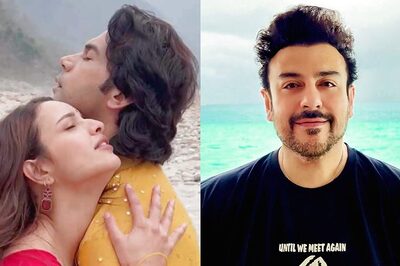
views
The last 10 years have been phenomenal for Bollywood in how stories of women have found their way from within the four walls of homes and workspaces into theatres and eventually people’s hearts. Though several men have played a crucial role in bringing out these stories, however, no matter how informed, few men can tell women’s stories the way women themselves can. It’s theirs after all.
Not that we don’t have female directors and producers—we do—but their numbers are lamentably low in an industry that still primarily banks on its heroes to do all the heavy weight lifting at the box office and keeps its heroines essentially for songs, glamour and maybe a scene or two.
So what do you do when as a female actor you’re tired of being only an eye candy? When you want more, but don’t get those parts or films? You take matters in your own hands, quite literally. You make the films you want to do but are not being offered. You create the parts you want to play and you play them to your heart’s fill.
The most exciting example is this category where a female actor decided to produce her own films so that she does not gets just to walk or run but fly—is Anushka Sharma. The 30-year-old had proved her mettle long before she turned producer with NH10 in 2015. She didn’t have any dearth of good films or meaty characters but Sharma wanted more and she made sure she had it.
She was unstoppable in the Navdeep Singh directorial and has since continued her dream innings in a series of impressive films—first Phillauri and then Pari (arguably one of the most intelligent horror thrillers in recent times), cementing her place across genres, showing cine-goers the magic that transcends on to the silver screen when potential meets opportunity.
Then there is Sonam Kapoor, who along with her younger sister Rhea Kapoor, has slowly been trying to make stories of women commercially viable. Beyond the sheen and the floss, both her Aisha and Veere Di Wedding are films that few male producers would have risked their money on. You may or may not agree with the politics or the messaging of their films, but the sisters do deserve credit for making stories of female friendships fashionable.
Now Deepika Padukone is also turning producer with her next film Chhapaak. Its title may not be in line with its serious theme but the film does address an important issue, a criminal offence that destroys a lot more than the victim’s physical features, an endemic reflective of India’s deep-seated patriarchy. We all know what an acid attack is and its horrors but surprisingly no mainstream film has yet addressed the problem head on. Until now.
In her many interviews during the promotions of her latest release Manikarnika: The Queen of Jhansi, Kangana Ranaut said she felt incomplete as an actor and wanted to contribute more to the craft of filmmaking, calling direction her one true vocation. Sure, her switch to direction could have been less controversial, but Manikarnika is unarguably a one-woman army. In the film, it’s difficult to say where Ranaut begins and Manu ends and vice-versa.
We would never know if Manikarnika would have been a better film than what it is now had Radha Krishna Jagarlamudi directed it in its entirety. But better or worse, it would have been a different film. Jagarlamudi did not have as much to lose when he left Manikarnika midway, as Ranaut had to gain. Thanks to whatever transpired on the film’s set, today Bollywood has one more woman filmmaker who is as fearless as she is passionate and committed.
Though she is yet to act in one of her productions, but Priyanka Chopra has emerged as a force to reckon with in the regional cinema space ever since she launched her banner Purple Pebble Pictures three years ago. She has already produced six films in varied languages, including Bhojpuri, Punjabi, Marathi and Sikkimese, and has announced three others.
There’s also Konkona Sen Sharma, who made a terrific directorial debut in 2016 with A Death in the Gunj. It was not a woman’s story. It was every person’s story and the sensitivity with which Sharma carved out and presented each character only makes one wonder what it would be like to get to know a woman on celluloid through her gaze.
The latest addition to the bandwagon is Swara Bhasker, who last month announced the launch of her production house Kahaaniwaaley. For an actor as vocal and uninhibited about gender rights as Bhasker, it’d be interesting to see what she adds to the discourse. With these A-listers helming the representation of women in Bollywood, it is going to be increasingly difficult to not pay attention.
Read: Bollywood Desperately Needs Revival. Experimental, Offbeat Films Are the Only Way Out
Read: Ek Ladki Ko Dekha Toh Aisa Laga Could Be the Love Story Bollywood Has Been Waiting For
Follow @News18Movies for more.


















Comments
0 comment